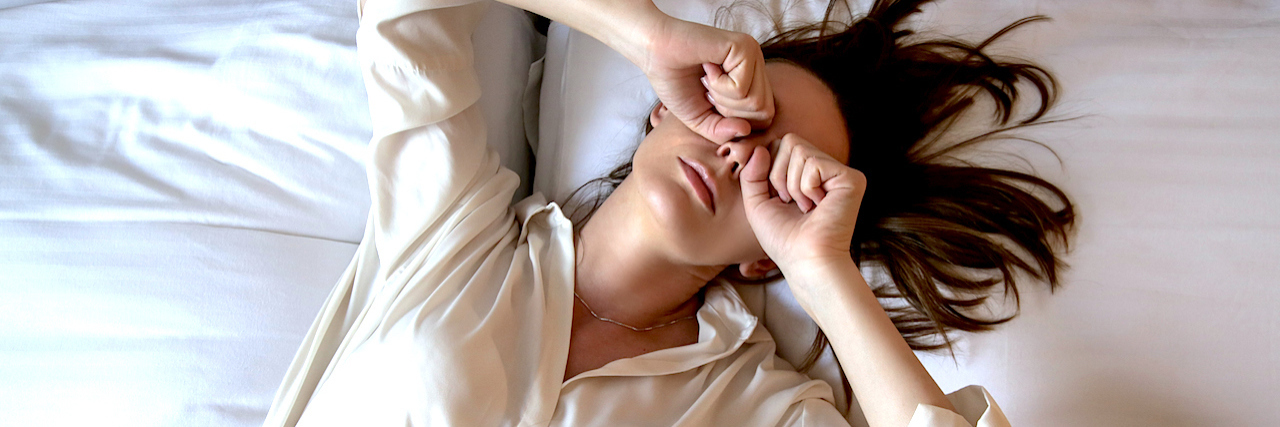I have good days and bad days, good weeks and bad weeks. Sometimes I feel like I have enough energy to walk around campus, while other days I have to coax myself out of bed to go to the bathroom. I understand what it’s like to have a “normal” amount of energy. I also know what it’s like to be so tired that my limbs feel like they have been replaced by concrete.
When I say “I’m tired,” I have a vast array of experiences to compare that feeling with. I don’t say it unless I truly mean I am exhausted. I say “I’m tired” when I have virtually no energy left in my body. It means I have likely not slept in days due to chronic pain and insomnia, and since food intake is difficult due to cooking, I’ve likely been unable to fuel my body adequately. My body is not functioning at even a quarter of what it’s sometimes capable of.
When I’m tired, I lie in bed wondering if I have the energy to roll over and pick up my phone. I question my ability to sit up, stand up, then walk to the kitchen to grab a granola bar. I wonder if I will pass out on my way to the bathroom as I lie there visualizing if bladders can actually explode.
Chronic pain and insomnia prevent me from getting adequate sleep at night. This means I often start off my day with half a tank of gas. When I do manage to get on with my day, it feels like I am in four wheel drive, attempting to accelerate up a steep, icy mountain in January. I can’t get traction and I waste what little fuel I have left very quickly.
By the time I get to my office I am in pain, sweaty and out of breath. I wonder how I’ll be functional when I can’t get my heart rate to a suitable number. I am so focused on reducing my pain that I can’t focus on my work. I am exhausted from my morning adventures up the mountain. I watch the time until lunch, when I can rest my head on my desk with fewer questions from my peers.
Being tired due to a rare disease means that others can’t always relate. They don’t understand that being tired for me is sometimes unexplainable, that I don’t have answers or solutions. I can’t drink coffee without getting a headache, I can’t sleep a full night’s sleep despite doctors trying to help and it feels like every cell in my body is working overtime yet not being compensated for it. I do not have hope for a better day, a better week or a better month to come. Since the medical professionals in my life know so little about my rare disease, there simply aren’t easy results I can expect from them.
When I do begin to feel better, it’s usually for a short time and I am always left wondering when my life will become difficult again. I can’t enjoy the relief of having more energy, because I’m constantly wondering when the pain and fatigue will return.
Life is not easy with a rare disease that causes chronic pain and fatigue. Everything feels more difficult than it used to. My arms and legs are so heavy due to overworking them with such little fuel, that every movement feels like it needs to be orchestrated ahead of time.
I use a mobility device to walk long distances and sometimes I am so tired that the physical act of getting the walker out of my car feels like too much. I’ll get to my destination and break down in tears because I don’t have the energy to remove it from my vehicle. I weigh the pros and cons of using it, wondering if I can walk far enough without collapsing in exhaustion. Everything I do is calculated. Do I have enough energy to complete this task?
When I say “I’m tired,” it means that I have fully evaluated how much energy I have, and what I intended to do that day is too much to handle. It means that I need to get home and lie down before I literally collapse. It means I don’t have a simple solution like taking a nap or drinking coffee, because that often doesn’t help. I live in a state of fatigue that seems endless when I am in a flare-up. I don’t know when it will end — will it be hours, days, weeks or months?
So please accept that when I say “I’m tired,” I’m not making excuses. It pains me to cancel plans, but it’s often my only option. I’m not lazy. I’m simply struggling to cope with a rare disease that causes chronic pain and fatigue. That what “I’m tired” means to me.
Getty image via triocean

